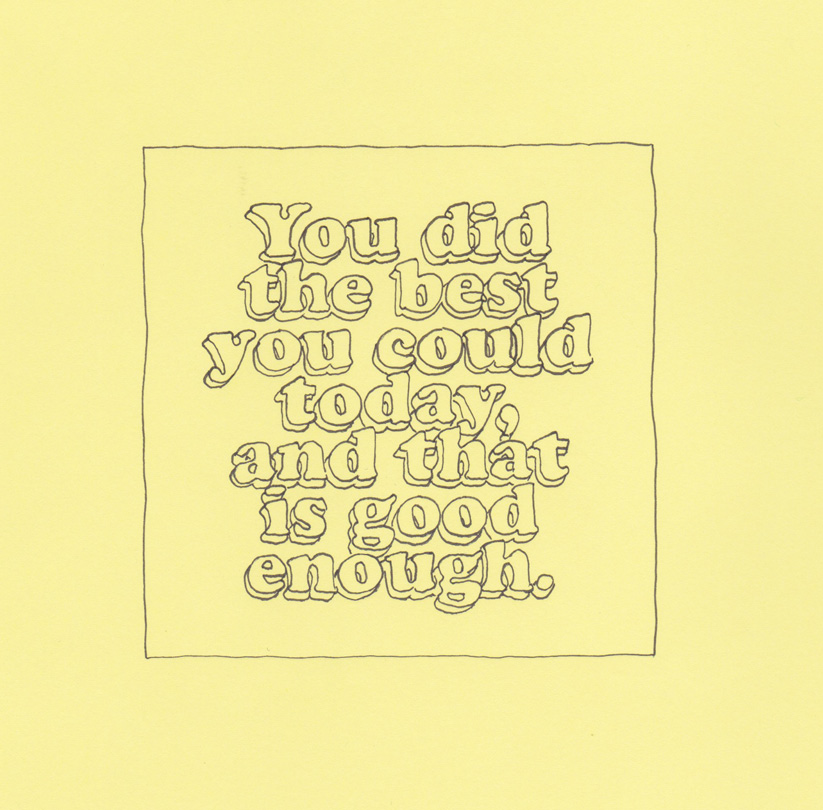The next reading group is:
Long-covid and the Medical Industrial Complex
Hangover Reading Club #12 – Online
Trafó Gallery, Budapest, HU
*Saturday 8 Oct, 10:30am bst / 11:30am cest*
in English, Online, over zoom.
Info here and to book : https://trafo.hu/en/additional_programs/hangover_longcovid
The Medical Industrial Complex is an enormous system with tentacles…Its roots run deep and its history and present are connected to everything including eugenics, capitalism, colonization, slavery, immigration, war, prisons, and reproductive oppression. It is not just a major piece of the history of ableism, but all systems of oppression. – Mia Mingus, Medical Industrial Complex Visual, 2015
On the one hand, people with muscular dystrophy resist the notion of body-mind trouble as it is repeatedly foisted on them, and on the other hand, people with Myalgic encephalomyelitis/chronic fatigue syndrome (ME/CFS) work overtime to have their body-mind trouble acknowledged while doctors and the media ignore and trivialise it. These two dynamics appear to be opposites, but actually they converge, pivoting on the ways the medical-industrial complex wields authority and dismisses what we know about our own visceral experiences. – Eli Clare, Brilliant imperfection, 2017
Long-covid is the latest in a long line of conditions where people have struggled to be believed and have experienced medical gaslighting. Long-covid arrives alongside ME/CFS, fibromyalgia, chronic lyme, endometriosis and others, and where prejudice, power and privilege in medical industrial complex, has stood in the way of the development of knowledge that may help. Harris has been developing a reading practice that works to situate and build context for the emerging condition long-covid within existing feminist disability and crip literature and theory. The main text for this session is Structure of Cure – a chapter from the 2017 book Brilliant imperfection by Eli Clare, which explores the way race, class, gender, sexuality and disability are intertwined within the ideologies of ‘cure’, and as these curative ideologies direct the medical industrial complex. A collection of readings related to medical gaslighting and long-covid are offered alongside. Harris will bring these into dialogue to offer a way of thinking about long-covid in relation to the structure of cure, before an open discussion to explore further resonances and affinities together.
The session will be in English, online over zoom with live captioning, but unfortunately not with BSL or HSL. The audio (not video) will be recorded and a transcript will be available after the session on request.
Previous sessions
As part of my residency at SPACE, London, I am running a long-covid reading group Jan – March 2022, that will explore texts and think critically about long-covid, chronic illness and disability. The sessions will take place on Zoom on the following dates. Scroll down for more information on each session, along with links to further reading.
- Medical gaslighting and the ethics of knowing
Sat, 29 Jan 2022, 10.30am – 12pm
book here - Crip time and pacing
Sat, 26 Feb 2022, 10.30am – 12pm
book here - Brain fog and embracing different ways of knowing
Sat, 26 March 2022, 10.30am – 12pm
book here
Link to SPACE: spacestudios.org.uk/events/long-covid-reading-group/
For their research residency at SPACE, Rowena Harris has been rethinking the term ‘care’ through drawing on their recent experiences of long-covid, and its arrival personally and politically as an entanglement with their existing condition ME/CFS (myalgic encephalomyelitis, also known as chronic fatigue syndrome) and the socio-political context and feminist concerns that surrounds it. Over three topics and sessions – crip time and pacing; medical gaslighting and the ethics of knowing; brainfog and embracing different ways of knowing – the reading group aims to bring together feminist illness and disability theory, concepts and dialogue in relation to long-covid experiences, and the socio-political terrain in which it is entangled.
How can feminist disability studies help us to understand long-covid as a personal and always political experience? When so many have been told ‘it’s all in your head’, where is care in the power dynamics of being believed or not in medical encounters? How does the management of life and work through resting and pacing, fit or misfit with the pervading logic of productivity? Can we think of chronic illness in terms of a radical opposition to neoliberal capitalism, and what is failure, then, in those terms?
The reading group is suited to people who are interested in thinking critically about long-covid, chronic illness and disability. There is no requirement to have prior knowledge of feminist disability studies nor any personal experience. However, people with long-covid or recent related experience that may have provoked new interest in these topics, are particularly welcome to join. As part of their interest and focus, Rowena is exploring virtual spaces and rhythms that support accessible engagements for brain fog and fatigue in particular, and will be working to develop this in practice for the reading sessions.
Each session will begin with a short introduction to the themes by Rowena, and then they will offer selected sections of the texts for collective reading as an impetus for group discussion. Reading the texts in advance is not a requirement, though it is recommended for the most fulfilling experience.
Sessions take place on Zoom, and will last 90 mins with scheduled breaks.
Suggested readings are available to download in advance from this dropbox folder.
***
1. Medical gaslighting and the ethics of knowing
Saturday 29 January 2022, 10.30am – 12pm
This session explores philosophical concepts and feminist theory about the origins and effects of medical gaslighting. Disproportionately affecting women and people of colour, medical gaslighting is when medical authority disbelieves or dismisses patients, blames an illness or symptoms as being ‘all in their head’, or wrongly tells them they are not sick. When sustained, medical gaslighting can be a form of abuse, where the persistent refusal to accept a patient’s account frequently leads that patient to doubt their own experience. Medical gaslighting is both a personal and socio-political phenomenon. In the case of ME/CFS (myalgic encephalomyelitis, also known as chronic fatigue syndrome), amongst other conditions similarly caught in the legacy of hysteria, the systemic blaming of patients’ symptoms as psychological has prevented advances in medical understanding, and thus knowledge of effective treatment and modes of care. Pressingly, people with long-covid have arrived directly into this lack of knowledge, inheriting both medical gaslighting in individual encounters, and lack of effective treatment and care.
Though grounded within the medical, the reading group explores expansive frameworks to think through encompassing themes. What are the power dynamics over the narrative acts of telling and being heard? Whose knowledge is validated or invalidated and why? What are the power dynamics in shaping reality? What is it to believe medical gaslighting over one’s own experience? And what is it to be gifted knowledge that offers the paradigmatic shift to truth?
You can book here
and download the materials here.
Suggested reading: (est. 90mins)
– (1996) Susan Wendell. The Cognitive and Social Authority of Medicine. Chapter In The Rejected Body. Feminist Philosophical Reflections on Disability, Routledge, UK, p. 117–38.
– (2021) Jennifer Sebring. Towards a Sociological Understanding of Medical Gaslighting in Western Health Care. Article, Sociology of Health & Illness
– (2017) Ian James Kidd and Havi Carel. Epistemic Injustice and Illness. Article, Journal of Applied Philosophy *p 183-6 only*
—
Further Reading
– (2007) Miranda Fricker. Epistemic Injustice: Power and the Ethics of Knowing. Oxford University Press, UK
– (2021) Me-pedia.org. Medical Gaslighting. (MEpedia is a crowd-sourced, Wikipedia-style encyclopedia of the news, history, and science of ME/CFS), (online): https://me-pedia.org/wiki/Medical_gaslighting
– (2016) Siobhan Simper. We Cannot Continue to Let Doctors “Gaslight” Chronic Illness Patients. The Mighty (online): https://themighty.com/2016/10/mecfs-and-gaslighting-what-to-do-when-doctors-say-youre-crazy
– (2021) Leslie Goldman. What You Need to Know About Medical Trauma and Medical PTSD. Health Central (online): https://www.healthcentral.com/article/what-to-know-about-medical-trauma
***
2. Crip time and pacing
Saturday 26 February 2022, 10.30am – 12pm
This session explores the long-covid recovery or management practice of pacing within the context of crip time. Pacing is a self-management strategy for activity, and against the worsening of symptoms that too much activity brings. Pacing involves devising individual life rhythms that incorporate multiple modes of rest throughout the day, along with techniques to limit unnecessary exertion where possible. This extends to physical, sensory and mental exertion, and where rest may be needed after seemingly simple things like taking a shower or reading a book. The result of living within the practice of pacing is a different relationship with time as well as space. Crip time is a way to describe this different relationship, and as a radically different way of being in the world. In this session we will explore how pacing, as a way of being in crip time, may not only be a flexible approach to normative time frames, but time re-imagined and exploded.
You can book here
and download the materials here.
– (2013) Alison Kafer. Time for Disability Studies and a Future for Crips, chapter in Feminist, Queer, Crip. Bloomington, Indiana University Press, US, p. 25-46
– (2021) Fiona Lowenstein. I Rested My Way to Recovery from Long Covid. I Urge Others to Do the Same. The Guardian (online): https://www.theguardian.com/commentisfree/2021/jun/21/long-covid-recovery-coronavirus
—
Further Reading
– (2017)Ellen Samuels, Ellen, (2017). Six Ways of Looking at Crip Time. Disability Studies Quarterly 37, no. 3.
– (2013) Alison Kafer. Introduction to Feminist, Queer, Crip. Indiana University Press, US
– (2021) Moya Bailey. The Ethics of Pace, South Atlantic Quarterly 120, no. 2: 285–99
– (2020) Srinidhi Raghavan. The Value of “Crip Time”: Discarding Notions of Productivity and Guilt, to Listen to the Rhythms of Our Bodies. Firstpost (online): https://www.firstpost.com/living/the-value-of-crip-time-discarding-notions-of-productivity-and-guilt-to-listen-to-the-rhythms-of-our-bodies-8440551.html
***
3. Brain fog and embracing different ways of knowing
Saturday 26 March 2022, 10.30am – 12pm
Difficulty remembering, processing, focusing, putting or holding together thoughts and sentences, has been widely experienced by people with long-covid. Colloquially this has been called ‘brain fog’, a term that has been borrowed from existing conditions that describe a similar experience. Through reading Mel Y Chen’s thoughts on brain fog in terms of cripistemology (concerning theories of knowledge that arise with disability and illness), this session will explore different ways of knowing the world through brain fog, as well as how such differences may be included as knowledge or not depending on intersectional structures of power, discrimination and privilege.
—
You can book here
and download the materials here.
– (2014) Mel Y Chen. Brain Fog: The Race for Cripistemology. Journal of Literary & Cultural Disability Studies 8, no. 2: 171–84



